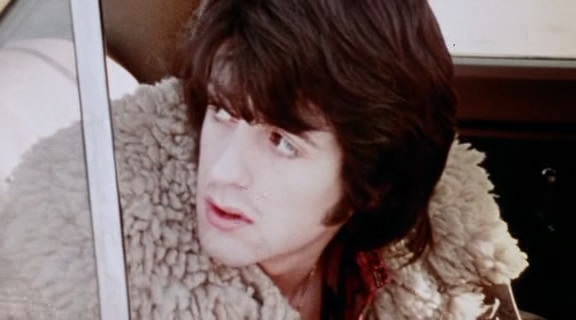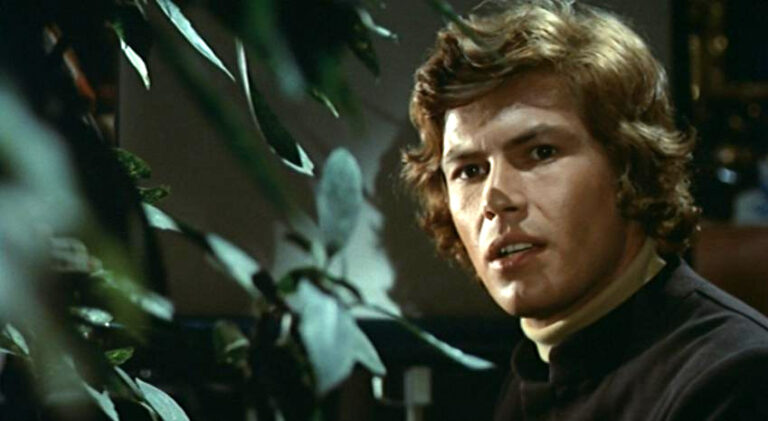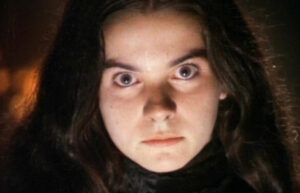-Grindhouse Fest is the special section in Celluloid Dimension where you can discover all the goodies… and baddies from the golden age of exploitation cinema. Have fun!
Directed by Franco Prosperi
Written by Romano Migliorini and Gianbattista Mussetto
Starring:
- Florinda Bolkan as Sister Cristina
- Ray Lovelock as Aldo
- Flavio Andreini as Walter
- Sherry Buchanan as Elisa
- Stefano Cedrati as Nino
- Laura Tanziani as Lucia
- Laura Trotter as Claudia
Rating: ![]()
A coarser, more unvarnished Italian sleaze riff on The Last House on the Left than Aldo Lado’s Late Night Trains, Franco Prosperi’s The Last House on the Beach delivers a politically provocative yet ethically compromised response to Craven’s seminal shocker. Trading in the same rape-revenge architecture but devoid of Craven’s coruscating nihilism, Prosperi’s film veers instead into the sordid territory of nunsploitation. The result is less a faithful facsimile than an ignoble inversion—one that traffics in humiliation under the pretense of catharsis.
Florinda Bolkan, in a quietly affecting and psychologically nuanced turn, plays Sister Cristina, a nun supervising a group of college-aged girls rehearsing a play at a remote seaside villa. Their calm retreat is shattered when three brutal fugitives—fresh from a bloody bank heist—invade their sanctum, initiating a prolonged siege of psychological torment and sexual degradation. What makes the ordeal so disturbing is not simply its sadism, but the specificity of its humiliation: a perverse glee in stripping Sister Cristina of both her spiritual ideals and her womanhood. Prosperi’s camera doesn’t recoil—it lingers, implicating the viewer in the slow erosion of sanctity.
And yet, this is no mere exercise in leering misogyny. The narrative, drenched in cruelty, is constructed to build toward a deliberately excruciating emotional rupture, so that when vengeance arrives, it feels less like exploitation and more like exorcism. The film, disreputable as it is, gradually turns its sadism inward, reversing the lens to expose the grotesque farce of masculine violence. By the time the tables turn, the men—initially agents of unchecked dominance—are reduced to pathetic symbols of their own brutality. Prosperi reclaims the narrative not through sentiment, but through calibrated, retaliatory horror. The final acts are as operatic in their retribution as they are sobering in their inevitability.
To call the film morally ambiguous would be generous—it is, after all, still rooted in a tawdry cinematic tradition—but it manages to articulate its sordid ideas with unexpected tonal dexterity. As a fusion of rape-revenge and nunsploitation tropes, The Last House on the Beach straddles the line between burlesque and genuine provocation. It’s an ugly film, and often reprehensible in its aesthetic choices, but its manipulation of discomfort is purposeful. Viewers expecting the visceral indignation of Craven’s original may find themselves confounded, if not repelled, but those attuned to the deeper ironies of exploitation cinema may recognize a grim subversion at work.
This is not a film that offers pleasure, nor does it seek approval. But in its own sordid register, it delivers a brutal, bewildering, and perversely articulate reckoning.









